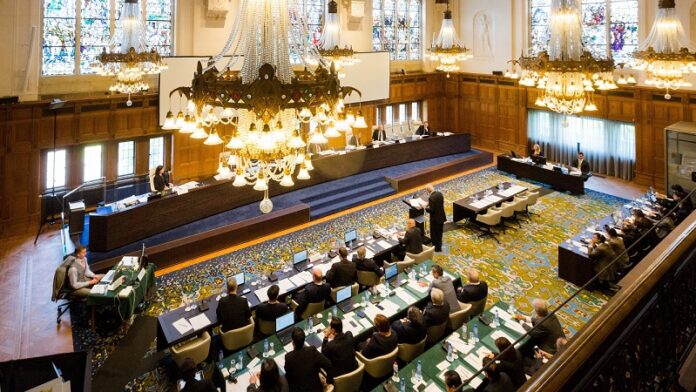The Permanent Court of Arbitration in The Hague has ruled that India’s decision to suspend the Indus Waters Treaty (IWT) has no bearing on the court’s jurisdiction over the dispute initiated by Pakistan. The ruling, issued on Friday, marks a significant legal victory for Pakistan, confirming that arbitration proceedings will continue despite India’s claim to hold the treaty in abeyance.
The court’s ruling came in response to the ongoing arbitration process that Pakistan began in 2016 over India’s construction of hydroelectric plants on the Indus, Jhelum, and Chenab rivers. Pakistan’s concerns focused on the design and operation of the Kishenganga and Ratle Hydro-Electric Plants, which India is allowed to build under the IWT.
In its Supplemental Award, the court emphasised that once arbitration proceedings have begun, they cannot be disrupted by unilateral actions taken by one party. The court referred to the IWT’s Article XII(4), which ensures that the treaty remains in force unless both countries mutually agree to terminate it. The decision reinforced the principle of pacta sunt servanda, which requires treaties to be upheld.
The court also rejected India’s claim that it could unilaterally halt the arbitration process and affirmed that the dispute resolution mechanism under the treaty must continue as intended. It further confirmed that the court’s jurisdiction remains intact, regardless of India’s stance.
Pakistan had raised concerns regarding the design of India’s hydroelectric projects, which it argued could affect the flow of water into Pakistan. India, in response, had sought the appointment of a neutral expert to address technical questions. The World Bank appointed Michel Lino as a neutral expert in 2022, but India’s suspension of the treaty in 2025 complicated the matter.
The court noted that the suspension of the treaty does not prevent the Neutral Expert or the Court of Arbitration from proceeding with the case. It also highlighted that the dispute resolution mechanism must be maintained to uphold the integrity of the treaty and resolve any issues that arise between the two countries.
Pakistan welcomed the court’s decision, stating that it reinforced its right to seek a resolution through the established arbitration process. Pakistan also expressed its commitment to engaging in meaningful dialogue with India, including on issues related to the Indus Waters Treaty, as emphasized by Prime Minister Shehbaz Sharif.
India, on the other hand, rejected the court’s ruling, stating that it does not recognize the Arbitration Court’s authority. India’s Ministry of External Affairs argued that the treaty was effectively suspended and that India was no longer bound by its obligations under the IWT, dismissing the court’s actions as illegal.
The court’s decision comes at a critical time for the two countries, as the Indus Waters Treaty remains a key element of their bilateral relations. Pakistan is awaiting further developments in the case and remains hopeful for a resolution that upholds the treaty’s provisions.
In the meantime, the court is expected to hear further arguments regarding the technical and operational aspects of the hydroelectric plants and their potential impact on water distribution.




